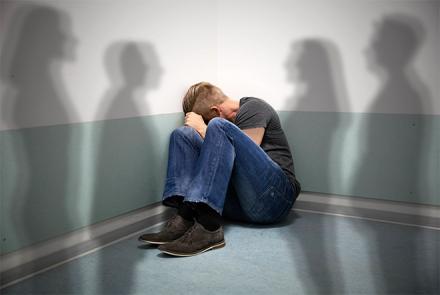
Dr R. Mangala, consultant psychiatrist, SCARF India describes early symptoms to recognize schizophrenia and emphasizes the importance of timely detection, intervention and treatment to minimize disability and improve chances of recovery.
Swiss psychiatrist Eugen Bleuler describes schizophrenia as –
“A slowly progressive deterioration of the entire personality, which involves mainly the affective life, and expresses itself in disorders of feeling, thought and conduct, and a tendency to withdraw from reality.”
This description clearly summarises that schizophrenia is a chronic and severe brain disorder.
Listed by WHO as one of the 10 most debilitating diseases affecting humans globally, schizophrenia is considered “The greatest disabler of youth”. Young people between 15 and 35 years are most vulnerable to this illness which has no gender, racial, economic, sociocultural or geographic differences.
It is a disease that makes it difficult for a person -
- to tell the difference between real and unreal experiences ( Loss of touch with reality)
- to think logically (Altered thinking)
- to have appropriate emotional responses to others (Altered emotions)
- to act appropriately in social situations (Impaired functioning/Personality changes)
The mental disorder does not suddenly appear one fine day. It creeps in stealthily and gradually progresses to a full blown state in a few weeks or months’ time. The course of this illness is characterized by different stages which usually overlap with one another. They are:
1) Prodrome (early symptoms)
“Things are not quite right”
- Vague symptoms before psychosis appears
- Understood in retrospect
2) Acute phase
- Clear psychotic symptoms
- ADL (activities of daily living) affected
3) Recovery Phase
- Gradual process
- Varies from person to person
The symptoms exhibited at different stages also vary.
1) Prodrome:
This is the very beginning of the illness when “things don’t seem quite right.”
The person exhibits some behavioral changes which can pass for normal variations in daily life. These changes are not a set of particular symptoms but a definite variation in the routine behavior of the individual in question. As mentioned, more often than not, this is realized in retrospect.
For example, an extremely cheerful fun loving person who usually engages in outdoor activities with lots of friends can start being alone, avoiding friends and remain behind closed doors in his room. This change in behavior usually gets ignored unless it becomes more serious.
We should remember we are not talking of changes which happen once in a while or last for a day or two. We are talking of changes which happen and remain unchanged at least for a period of two weeks.
Common symptoms that are non-specific are considered prodromal. They include:
- Reduced attention and concentration (difficulty in filtering out distracting information and sensations)
- Reduced interest and motivation
- Depressed mood
- Sleep disturbances
- Anxiety/Fear
- Social withdrawal (feel more disconnected and prefer being alone)
- Suspiciousness
- Deterioration in role functioning
- Irritability
- Confusion (about what is real and what is not real)
To explain a typical scenario, a school or college going student can lose interest in studies because of difficulties in concentration, can show a decline in academics and may avoid going to school or college. He can become irritable for trivial reasons or appear restless and apprehensive all the time. This can be interpreted as normal adolescent behavior by the family. His sleep can become disturbed or he may sleep at odd hours. He becomes guarded and views everyone with a degree of suspicion which increases as the illness progresses, and may include several people.
In a slightly older individual who is employed or married there is a definite decline in their occupational functioning and in their role functioning at home. They may miss work, lose jobs or become dysfunctional at home in the case of homemakers, causing hardship to the rest of the family.
At this stage their behavior is considered unreasonable and unacceptable to the distressed family as they are unable to identify a mental illness in the person.
This stage of illness can last for varying periods of time in different individuals from few days to several months.
2) Acute Phase
This is followed by the acute phase when clear psychotic symptoms appear. They include:
- Delusions
- Hallucinations
- Disorganized speech
- Emotional outbursts
- Suicidal attempts
- Difficulty in functioning
- Disorganized behaviour
It is at this stage most families seek help. The longer a person remains untreated at this stage, the greater is the disability with poorer outcomes.
Worldwide scientific research and experience with schizophrenia has highlighted the importance of intervening early in the course of illness to minimize disability and improve chances of recovery. So early identification plays a key role in the course and outcome of the illness.
Awareness about the illness, keen observation and a certain degree of suspicion will help in identifying the illness early. Proper understanding about the neurobiological nature of the illness and dispelling myths and misconceptions will reduce stigma and improve help seeking patterns.
Adolescents and young adults who are vulnerable should be encouraged to talk to family members, teachers or significant others and /or seek help from mental health professionals (which includes counselors, social workers, psychologists and psychiatrists).
3) Recovery Phase - Experiences and Case Studies
Personal Experiences
Family Support is Crucial for Better Outcomes of Schizophrenia
The Role of Physical Activity and Exercise
|
To summarize: It is important to remember that schizophrenia is a treatable disorder. Early identification and early intervention promotes better outcomes and limits disability. Medicines play a major role in management of schizophrenia. Psychosocial interventions play a significant role in reintegration into the society. |
|
Presence of any of the following symptoms for 2 weeks or more could be the beginning of Schizophrenia Significant decline in academics or work Feeling dull or depressed Prefers to be alone Difficulties in attention and concentration Feeling confused/ confused talk Unexplained fear and anxiety Suspiciousness Anger outbursts |
















